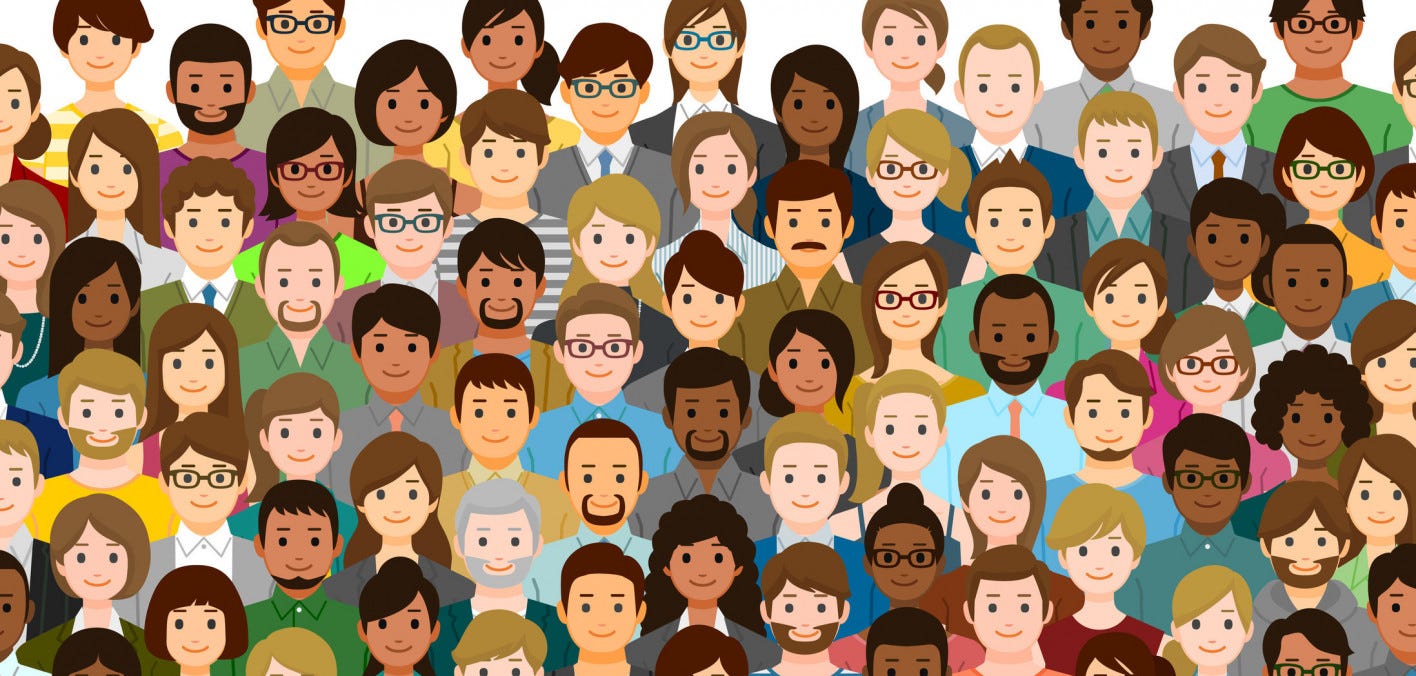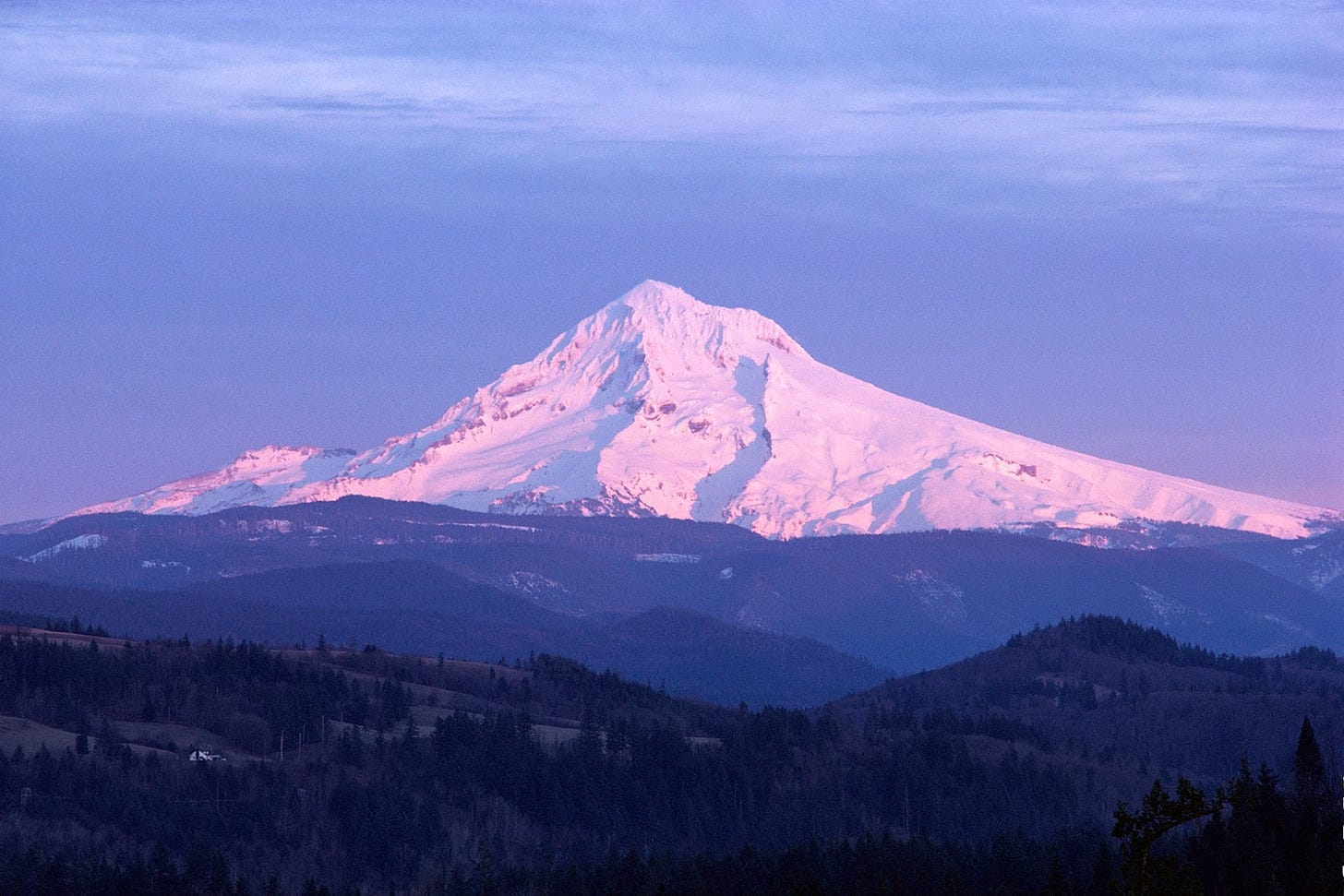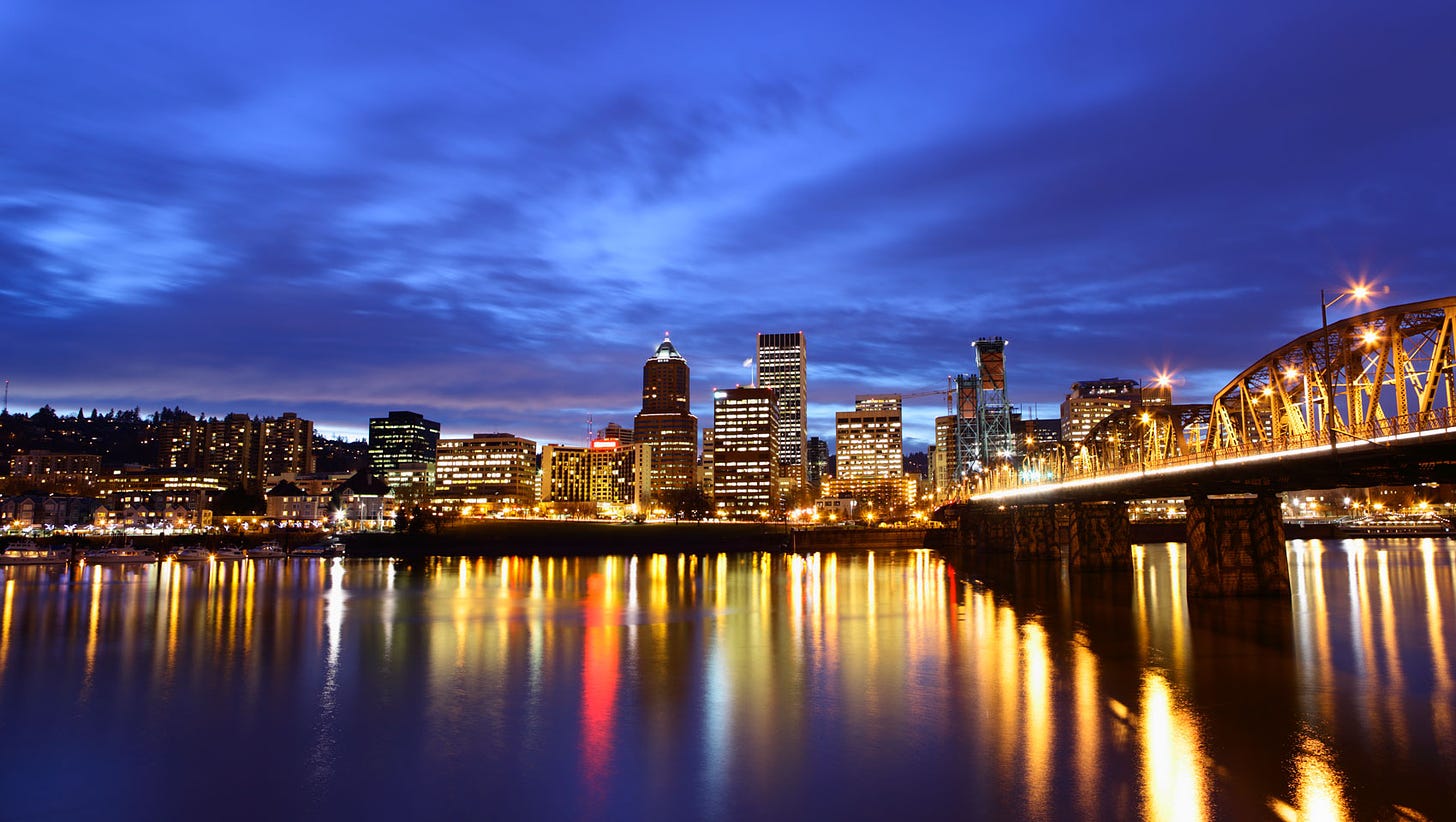There's No Truth To The Rumor That Portland Will Be Changing Its Name To White Bread City
Let's just say that diversity isn't one of Puddletown's strong points
I love Portland. I first moved here in 1983, having spent my first 23 years as a prisoner of Minnesota’s harsh and unforgiving winters. I wanted out, and I’d fallen in love with Portland when I came here the summer before to visit my fiancé. So when she wanted to move back to Portland, I couldn’t say “HELL, YES!!!” fast enough. I was ready to leave my snow shovel and snowmobile suit behind forever.
I arrived in mid-April 1983 with all the hope and naïvete that youth provides…and then some. Everything seemed possible, and everything- the air, the weather, the people, the food- felt different. It was as if I’d landed on another planet. Getting used to my new home was a daily exercise in discovery and joy. I didn’t even mind the rainy days and the grey skies and developed a new philosophy- I didn’t care what the weather did as long as I didn’t have to shovel it. Portland gets lightly snowed upon perhaps a couple of times each winter, which makes things pretty for a day or two. Then it melts quickly, and life returns to normal.
Sadly, the marriage didn’t last. We divorced after seven years, but I couldn’t think of a good reason (or ANY reason) to return to Minnesota. I eventually did go back for a year- exactly 365 days, but one winter back in Minnesota was enough to convince me where I wanted to be…and it sure as Hell wasn’t Minneapolis. Don’t get me wrong; I love the Twin Cities, but not from the beginning of November to the end of March.
So Portland is home, yet during the 40 years I’ve been here, I’ve left and returned on four different occasions. The last time, after ten years (3722 days, not that I was counting) on the Texas Gulf Coast between Houston and Galveston, I realized enough was enough. It was time to stop chasing whatever I’d been pursuing and put down some roots. And eventually, I did. I got married, and we bought a house in north Portland. Calling this “home” feels good. Knowing I have roots feels even better.
I love Portland. For me, it’s a perfect size. It’s big enough to offer many of the things a big city would, yet small enough to be manageable. Over the past few years, the Rose City has begun to show a few cracks, though, and many “big city” problems- drugs, gun crimes, vandalism, and the like- have become more prevalent.
Many Portlanders are increasingly frustrated with increased crime, drug use, and homelessness. I’m a bit more sanguine, though I’m certainly not thrilled about vandalism and businesses being robbed, in some cases repeatedly. The Portland Police Bureau is chronically understaffed, so they often can’t respond to certain crimes or respond promptly. It’s frustrating when the police department our taxes allegedly pay for doesn’t do what we expect them to do.
Another thing about Portland that isn’t what it could be is that it lacks diversity. It’s one of the Whitest cities in one of the Whitest states in America. Vanillaville is an unfortunate descriptor, but alas, not an inaccurate one.
PORTLAND, Ore. (KOIN) — According to the U.S. Census Bureau, the nation’s multiracial population grew from 2.9% in 2010, to 10.2% in 2020 — marking an increasingly diverse country overall. But as the U.S. becomes more diverse, a new report shows that the city of Portland is falling behind.
“It’s important to embrace diversity – and it’s good for the economy, too,” personal finance website WalletHub said in its latest study. “Not only have waves of immigration changed the face of the nation, they’ve also brought in fresh perspectives, skills and technologies to help the U.S. develop a strong adaptability to change.”
WalletHub determined which of the U.S.’s 501 largest cities were the most diverse in the study, which looks at metrics such as socioeconomic, cultural, economic, household and religious diversity.
The report gives a comprehensive list of the U.S.’s most populated cities from most-to-least diverse, and also gives individual rankings based on city size.
For large cities, Houston, Arlington, Texas, New York, Charlotte, N.C., and Dallas, Texas were recognized for having the most diverse residents.
Portland, on the other hand, was the fourth-to-last big city for diversity, followed by Pittsburgh, El Paso, Texas, and Detroit.
Suburban Portland has a fairly diverse population, particularly in the Tualatin Valley to the west of the city, where the area’s high-tech sector has flourished. Portland, for a city with roughly the same population as Baltimore, yeah, is astonishingly White.
One of the first things that struck me when Erin and I were in Vancouver, BC, a few weeks ago was how diverse the entire area is. Granted, Vancouver’s history and immigration trends are vastly different from Portland’s. Canada has a different approach to welcoming immigrants than America, but diversity is a hallmark of Vancouver, and the city is justifiably proud of it.
If you go to a Trail Blazers basketball or a Timbers soccer game in Portland, you’ll encounter a sea of White faces. The difference between Portland and Vancouver is stark; it can be seen in the faces on the streets, the restaurants, and the shop fronts. Vancouver is a major international business hub and one of Canada’s largest cities, while Portland is a mid-sized American city tucked in the country's northwest corner. It’s easy to forget about us way up here…and much of the country does.
Of course, it’s not that there isn’t diversity here in Portland. We have Black, Native American, LGBTQ, and other minority communities. Many of them have celebrations and invite others from outside their community to celebrate with them. And Portlanders of whatever derivation tend to welcome others. But those communities also tend to be very small compared to the majority White community.
This means money and political power are concentrated within an almost entirely White power structure in Portland, and marginalized communities are often overlooked. To see this dynamic at work, all one has to do is travel east of I-205. There you’ll find fewer sidewalks, more poorly-maintained roads, and more evidence of general decay than on the more affluent west side of town.
I suppose Portland’s no different from many cities in that respect. Equity and equality can be difficult to achieve when discussing hundreds of thousands of people and diverse neighborhoods. That said, all things considered, Portland is a pretty good place to live, warts and all. It’s why I continue to call Portland home and probably always will. It’s hard to see myself anywhere else.








